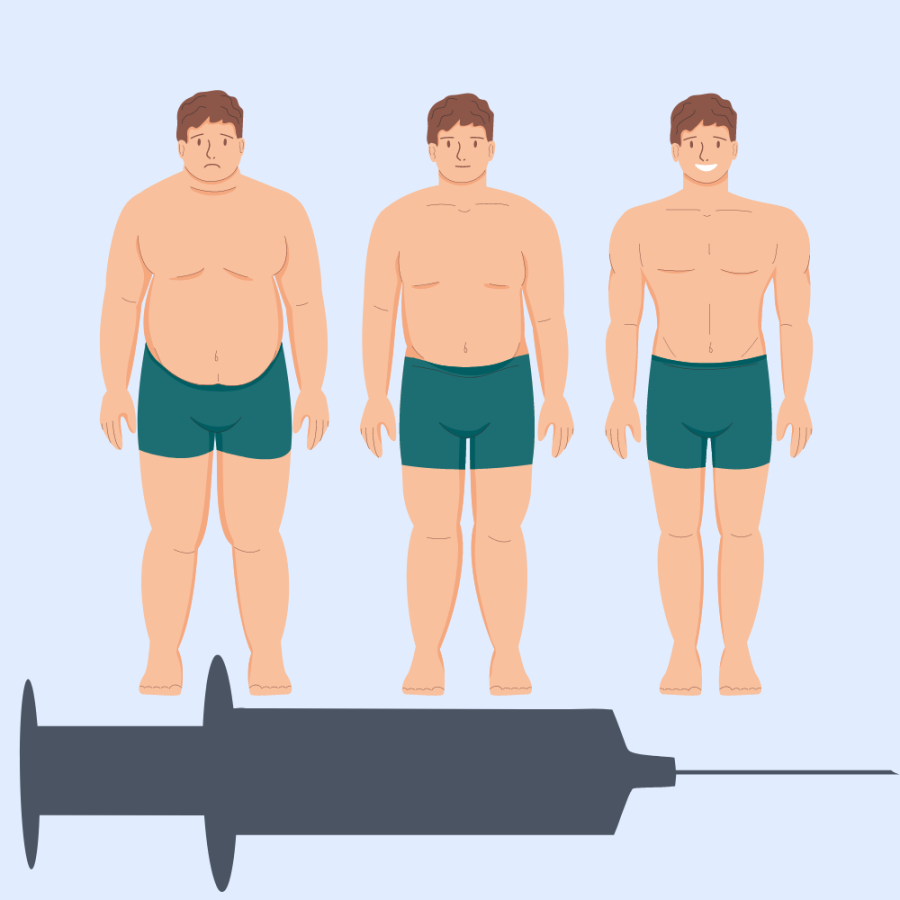11.3% of Americans are living with diabetes. 49.1% of Americans want to lose weight. These statistics seem to be separate issues, but since diabetes drugs went viral for their weight loss capabilities in recent months, the two have become intertwined.
Diabetes management drug Ozempic was originally approved in 2017 to help those with type 2 diabetes manage their condition. It was successful in helping manage blood sugar levels, but there is currently no cure for diabetes, so those taking Ozempic must use it their entire lives.
Recently, some healthcare providers and obesity patients have turned to Ozempic as a weight loss drug. Although the FDA has not yet approved Ozempic to treat obesity, it can be prescribed off label by physicians. In most patients, Ozempic has been successful in causing weight loss, reducing body weight by nearly 15% in some cases. Due to the weight loss properties of Ozempic, many people are chasing this so-called “miracle drug.” However, due to its rising popularity, shortages of Ozempic have been reported across the country.
People in favor of Ozempic being prescribed for weight loss often point towards the global obesity epidemic. By using medications like this, doctors can work towards resolving obesity before it leads to major health concerns. Professionals suggest that if more people had access to weight loss solutions, they wouldn’t develop type 2 diabetes and end up requiring drugs.
Ozempic isn’t only gaining popularity among the medically obese, but also amongst celebrities seeking to lose weight. Typically, Ozempic is prescribed to those whose obesity puts them at risk of health problems, but these celebrities use it to achieve rapid weight-loss.
However, it’s no surprise that mostly celebrities are utilizing the drug, considering that its $1,349 a month price tag makes it unattainable for most average people. Junior Bella Harnandez questioned this pricing, suggesting it might be causing the shortage, “We are just putting it into the hands of people who may not need it and then takiong it away from the people who truly need it to survive.”
Many public figures have been accused of using the medication, though few have publicly admitted to it. Khloe Kardashian notably responded to these accusations. She didn’t explicitly deny her use of the medication, instead attributing her extreme weight loss to frequent exercise. Junior Alene Keppy feels that Kardashian’s reaction is stategically meant to avoid public outrage, “I think the reason Khlow would deny using it [Ozempic] is because if she admits to it she’ll get a lot of backlash,” Keppy reasoned.
While celebrities can afford to take the risks associated with Ozempic to lose weight, people who really need the drug are facing life-threatening shortages. When diabetics don’t have access to treatments that manage their blood sugar, they may experience dramatic spikes that, if left unchecked, can cause a host of health problems in the future. Since Ozempic is being poached for weight loss, this nightmare is becoming a reality for diabetic patients, necessitating a lower dosage or a complete change to a less effective drug.
There is certainly an ethical dilemma surrounding the prescription of Ozempic being prescribed as a weight loss drug. Some argue that since the drug is originally meant for diabetic use, it needs to be reserved for diabetic patients, especially since they need it to stay healthy. Those in opposition to the drug for weight loss cite those using it for that purpose, claiming that superficial intentions should not supersede medical necessity.
Hernandez is one beleiver in this side, “Diabetes in common, and if someone is taking this to keep them alive, I think they have the right to… I don’t think it should be handed out to anyone who wants it,” she remarked.
Though the drug has worked wonders on slimming the bodies of patients, Ozempic’s side effects may outweigh its benefits. Physicians have reported seeing increased facial aging, acid reflux, heartburn, gastrointestinal issues and dangerous loss of appetite in those taking it. Additionally, once started on the medicine, patients have to take it indefinitely in order for its effects to last, so side effects are unlikely to go away.
As stories continue to break, Ozempic has gone viral, racking up over 360 million views on TikTok. Internet popularity has increased its demand, but the simple fact is that there isn’t enough supply available. The Danish company that produces Ozempic, Novo Nordisk, has claimed that shortages will be resolved in the coming months, but the question remains: who should be able to get Ozempic, and for what purpose?









